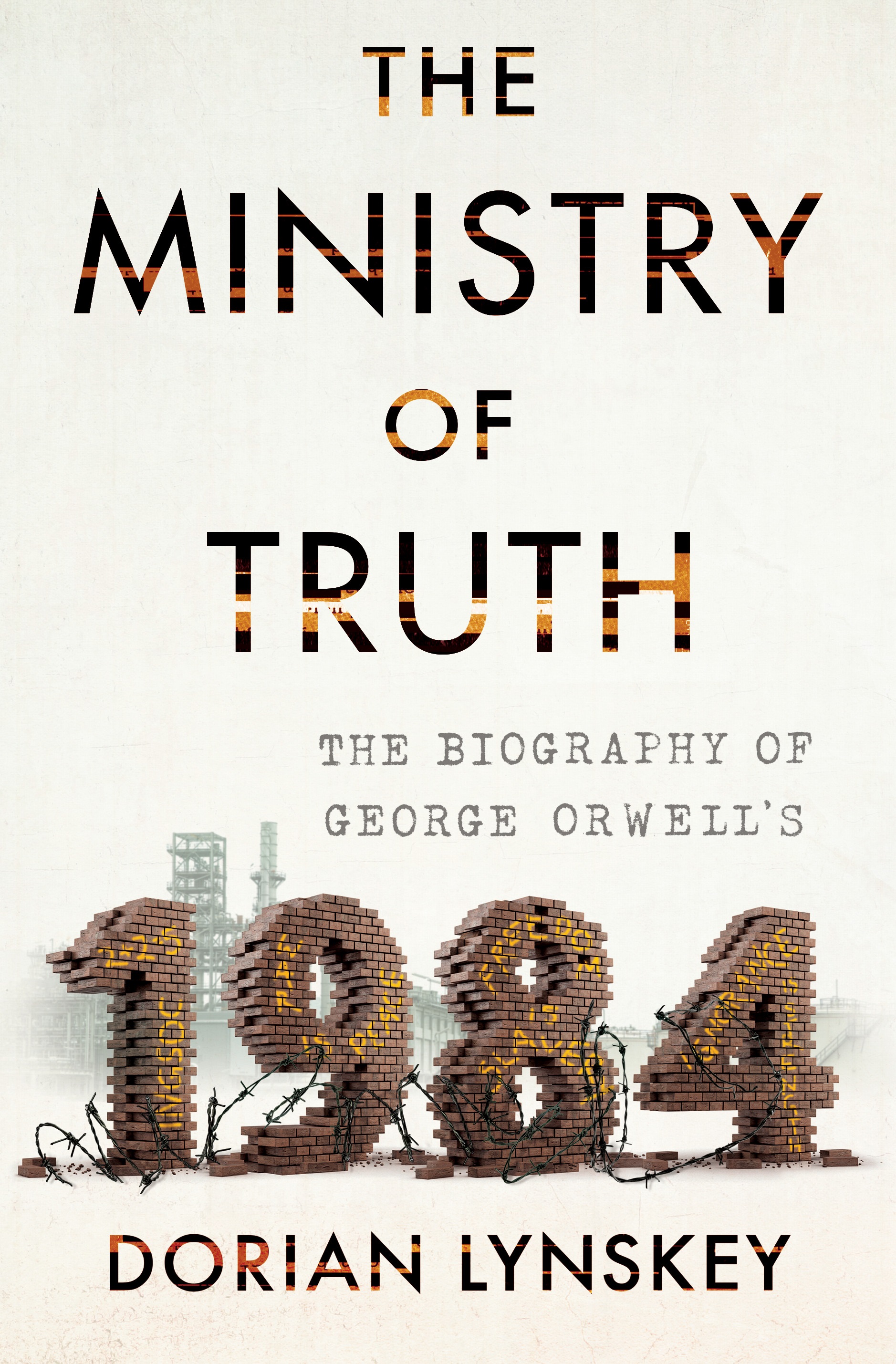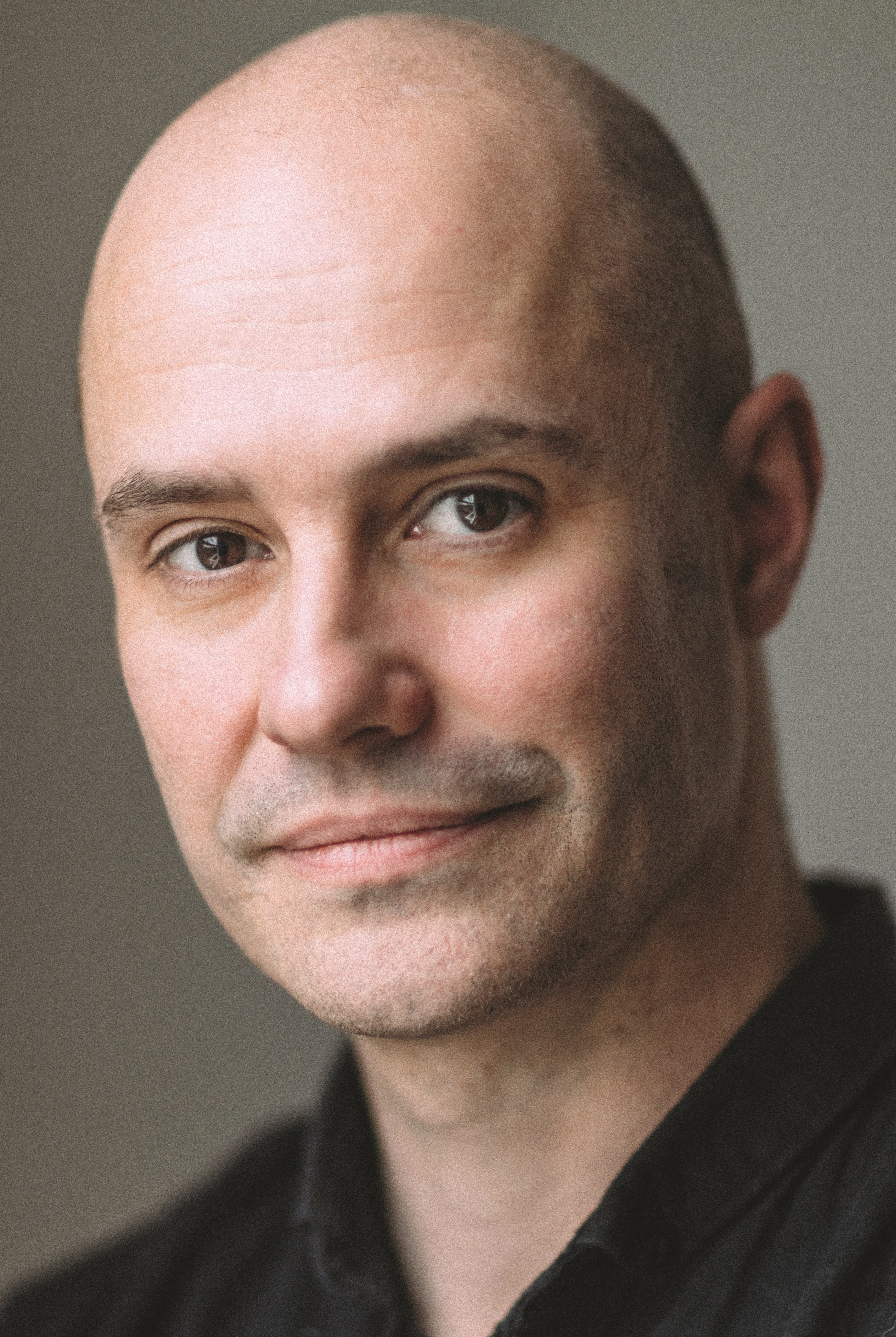George Orwell’s voice is one of the most enduring in 20th-century political literature. In The Ministry of Truth: The Biography of George Orwell’s 1984, Londoner Dorian Lynskey explains vividly why Orwell still matters.
The Ministry of Truth goes in-depth on the influences that shaped Orwell and his view of the world. It explores his visceral hatred of inequality and his disgust at totalitarians and their enablers. Fighting and writing in the Spanish Civil War strengthened Orwell’s commitment to the political left, but also sharpened his criticisms of ways that elements of the left were going astray.
The Ministry of Truth is informed by extensive research into both history and pop culture, ranging from the traumas of the 19th and 20th centuries to our present troubled moment, which Orwell’s writings continue to explain and clarify. The book incisively covers Karl Rove’s critique of the “reality-based community,” Rudy Giuliani’s avowal that “Truth isn’t truth,” the battle over Russian disinformation, and censorship in China. Lynskey, a Guardian contributor and the author of 33 Revolutions Per Minute, a book about protest songs, writes engagingly, and makes a persuasive case for Orwell’s contemporary relevance.
Lynskey spoke with Pacific Standard to discuss Orwell’s enduring sense of humor, the prospects for democratic socialism in the 21st century, and the single most galling misconception about Orwell.

“Socialism is such elementary common sense,” George Orwell wrote, “that I am sometimes amazed that it has not established itself already.” Yet Orwell also suspected that many voters are “driven away” from such ideas by the sort of socialists they tend to meet. “Bearded,” “vegetarian,” “teetotal,” “middle-class,” and “a pacifist,” as Orwell describes the typical socialist. Is that also a fair description of British Labor leader Jeremy Corbyn?
Those lines have certainly been quoted by British journalists with reference to Corbyn. I’m sure Orwell would have sympathized with many of the goals of Corbyn’s Labor Party but would have been surprised that the British left had pinned its hopes on the kind of man he found so unappetizing. It’s worth nothing, though, that this was Orwell at his pettiest, taking many cheap shots at people he found annoying, and he grew out of this after Spain, where he realized that there were characters on the left much more troubling than bearded vegetarians.

(Photo: Doubleday)
Orwell was an ardent writer and fighter on behalf of democratic socialism and “human brotherhood.” Is democratic socialism a realistic hope in 2019?
I hope so. It is certainly a more likely prospect than it has been in decades. But I do find it dismaying that parts of the left continue to make the same old mistakes: a failure to understand the range of fears and desires that motivate ordinary people, a refusal to confront their own flaws, a weakness for authoritarians abroad, and so on. The British Labor Party under Jeremy Corbyn is guilty of this. I’m more hopeful about the United States, where people like Bernie Sanders, Elizabeth Warren, and Alexandra Ocasio-Cortez have so far avoided most of these traps and focused on bold domestic policy ideas.
Orwell has always been popular with the right because he saw so clearly what was wrong with the left, but he did so because he wanted the left to be better and to fulfill its potential, without tripping itself up or betraying its principles.
What light can Orwell’s work shine on contemporary British politics, and Brexit especially?
He wrote well about the English (as opposed to British) character, and how distinct it was from the rest of Europe, but following the [Second World] War, he strongly believed that a socialist United States of Europe would be an essential counterweight to the United States and the U.S.S.R. He disliked xenophobia and welcomed immigrants, especially refugees. People often quote his most flattering lines about the English, but he could be stingingly critical as well: “Millions of English people willingly accept as their national emblem the bulldog, an animal noted for its obstinacy, ugliness, and impenetrable stupidity.” What a fantastic line! So I don’t believe that he would have found much to respect in the Brexit mentality, nor would he have been surprised by it.
What did you find that was surprising as you researched the book?
One of my favorite discoveries was that when Orwell’s U.S. publisher approached J. Edgar Hoover for a blurb, not only did Hoover decline but he immediately opened a file on Orwell. Later, 1984 became a favorite of both Lee Harvey Oswald and the Black Panthers. It has been popping up in surprising ways for the last 70 years, in a way that no other book has.
What got you hooked on Orwell in the first place?
It was reading Essays—Penguin Classics—in my twenties, [and] that really revealed Orwell’s mind to me. I loved his clarity, curiosity, wit, and ability to be formidably intelligent yet approachable, respecting the reader as an equal. He had a way of laying out his thinking on the page so that it felt as if he was coming to a conclusion at the same time as the reader, which is a rare and charming sleight of hand. It’s impossible to write quite like Orwell, but it’s well worth trying to think like him.
Revisiting those essays this time, I was amazed how relevant they still were. “Notes on Nationalism” is brilliant on the psychology of prejudice and various cognitive biases. “Looking Back on the Spanish War” explains the principles of misinformation and why people willingly believe flagrant lies. “Benefit of Clergy: Some Notes on Salvador Dali” remains one of the sharpest takes on the tension between the quality of art and the morality of the artist. These are all things that we’re still debating now, and Orwell’s ideas hold up.

(Photo: Alexandra Dao)
Orwell wrote in his essay “Freedom of the Park”: “The law is no protection. Governments make laws, but whether they are carried out, and how the police behave, depends on the general temper in the country. If large numbers of people are interested in freedom of speech, there will be freedom of speech, even if the law forbids it; if public opinion is sluggish, inconvenient minorities will be persecuted, even if laws exist to protect them.” Prescient for the present era, isn’t it?
Absolutely. Oceania [the fictional setting of 1984] has the Thought Police and the telescreens, but in many ways the citizens pacify themselves. Orwell’s generation had just seen millions of people slide into totalitarianism, often with great enthusiasm, and he was determined to make people aware of the rights they could lose if they weren’t paying attention. Demagogues and tyrants only thrive if huge numbers of people let them, whether through active support or just apathy. Today, he would be more interested in Trump supporters than in Trump himself.
What do you hope readers will take away from The Ministry of Truth?
I would like to transmit what I’ve learned from immersing myself in Orwell. Like him, I dislike theory, jargon, and bullshit; I enjoy clarity, humor, and getting my facts straight. Think harder. Scrutinize yourself. Take nothing for granted. Never be afraid to admit when you’re wrong. Live up to your avowed principles even when they’re inconvenient. Remember that most of the problems that plague us now have been with us for decades, and they are soluble—or at least survivable—if you make the moral effort to see things clearly and act honestly. I also hope the jokes land. Orwell liked jokes.
Is there a widespread misconception about Orwell that you find especially galling?
Any attempt to claim Orwell for the right is dishonest—he never stopped being a democratic socialist and made no secret of that—but what particularly bugs me right now is the suggestion that he was a free-speech absolutist. He believed in freedom from state censorship, but he also believed that actions had consequences. When someone gets into trouble for saying or tweeting something obnoxious and then complains about “the Thought Police,” I think of Orwell’s thoughts on Ezra Pound: “Anti-Semitism … is simply not the doctrine of a grown-up person. People who go in for that kind of thing must take the consequences.” He would not have rushed to the defense of every loose-lipped bigot who thinks free speech means freedom from criticism.
This interview has been edited for length and clarity.

Pacific Standard’s Ideas section is your destination for idea-driven features, voracious culture coverage, sharp opinion, and enlightening conversation. Help us shape our ongoing coverage by responding to a short reader survey.





